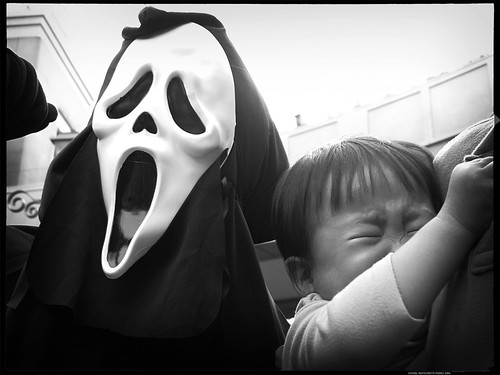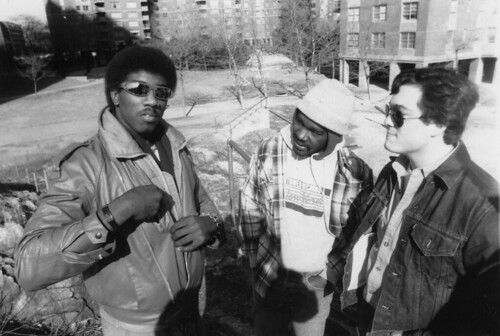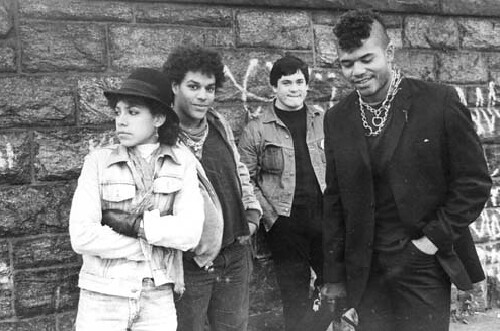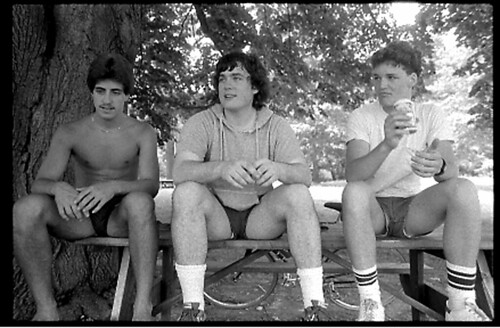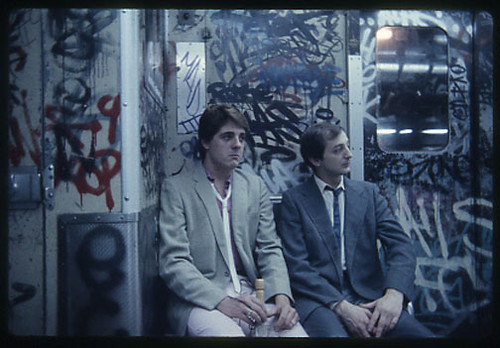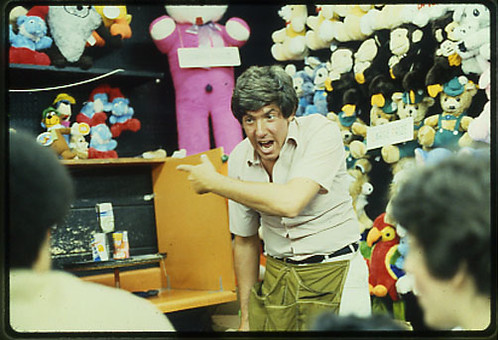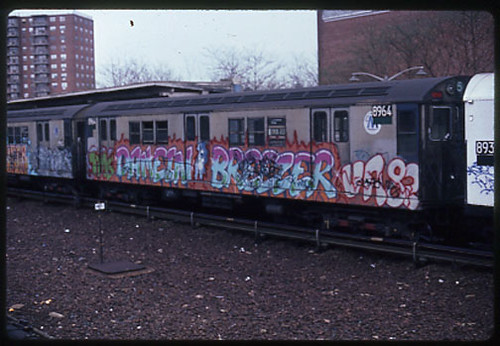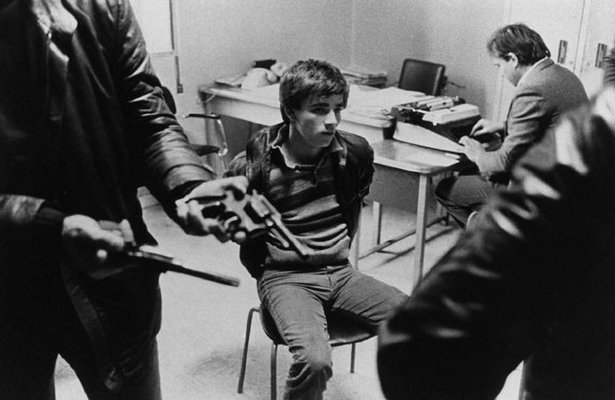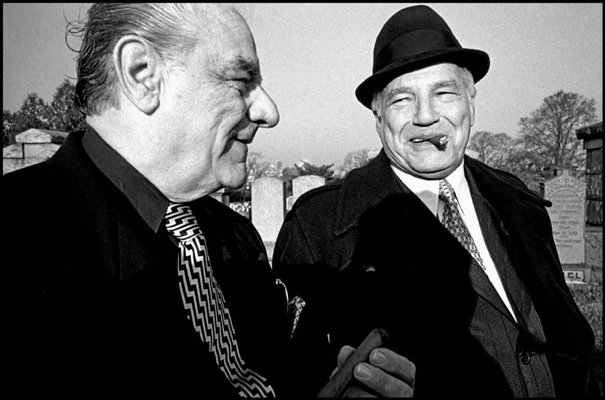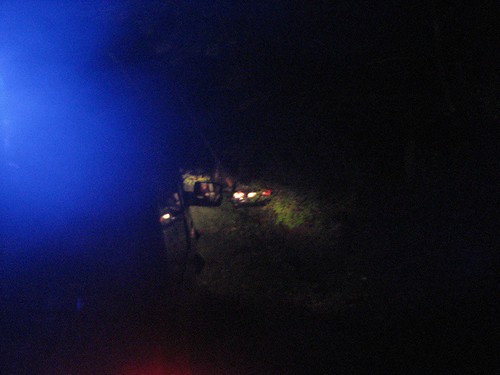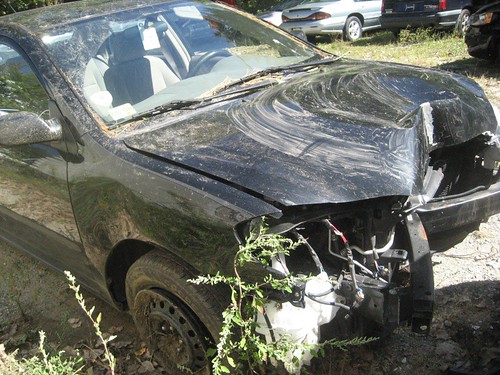
For my money, the best scene of The Darjeeling Limited, by far, was the opening scene, which somehow managed to convey the potential, the strengths, and the increasing disappointments of Wes Anderson as a filmmaker. The scene, as I recall it:
Start with a aerial view of a dense and exotic Indian town, suddenly zoom in on a taxi careening through the narrow streets, weaving among the shopkeepers, the pedestrians, the bicycles, mopeds, motorcycles, cows, pushcarts, and lorries, enter the cab to see a perfectly drably dressed businessman, played by Bill Murray, tense and frantic. Shift the perspective to inside the cab as it weaves through the city and comes to a halt in front of the train station, have the camera follow Bill Murray as he dashes from the cab, carrying his suitcases, running through the train station that is both bustling and lacking in hurry, track him along the train platform as he desperately runs to catch a train that is pulling away. Into the tracking shot, enter Adrien Brody, perfectly outfitted in a thin grey suit as if he is the human embodiment of 1982, running effortlessly past the older Bill Murray. Slow the shot down and start playing a Kinks song, as Brody's long and elegant frame jumps onto the train as it pulls away from the station. Watch him swivel and focus in on his sunglasses, as his sad eyes as he surveys the older Murray, panting, unable to make the train. Allow Brody a wry and knowing smile, and then exchange an oddly diffident look with the coolie sitting on the train's caboose. Pan down to the brightly colored train name, serving as a title card.
The opening sequence, from the panoramic view of the city through to when Murray is running down the train platform is the true genius of Wes Anderson, that, since Bottle Rocket, so rarely shines through. The shot is stylish and timeless, immaculately well-detailed in its visual touches, but not staid and archival. The camera moves deftly and eloquently, but in service of the action, not as cinematic gimmick. The strange, the beautiful, the quotidian, the damned, and the absurd all manage to inhabit the same sequence side-by-side without feeling forced or staged. And the central character, although two-dimensional in a plain yet dapper gray suit, manages to convey real emotion and struggle.
With Adrien Brody's entrance into the scene, you see the greatness that Wes Anderson most readily achieves -- that of a director of art-house music videos to a version of the 1970s that never existed. Cue the cool music, cue the slowed down tracking shots, the great clothes, the actors with iconic faces.
And with Brody's wistful stare at Bill Murray (his past and future?), the pure frustration that are Wes Anderson's films. Why should Brody give Murray a knowing stare? Brody's Peter Whitman, a character without a discernible job, scion of an anonymous, but wealthy family, suffering from a specific but unlikely grief, is looking neither at his past nor his future in Bill Murray. Peter Whitman, like all the Whitmans, and like all of Anderson's recent characters, aren't real people. They wear their emotions like clothes, accouterments to their antic and ultimately fraudulent personalities. So what's there? Nothing. So why do they act like something's there? It is impossible to tell...
Ultimately, that over-long analysis of the opening scene reflects my feelings about the movie, and probably, to varying degrees, about every Anderson movie since Rushmore: beautiful tableaus, stylish sequences, but ultimately, the semblance of meaning, without actual meaning forming the core. Thank god Anderson has Owen Wilson to understand how important charm and whimsy is to inhabiting these fundamentally absurd characters, and is able to draw on truly fantastic actors in Angelica Houston, Adrien Brody, and Bill Murray, who through their eyes, mouths, bodies, and delivery of their lines can turn the ridiculous into the almost-believable.

